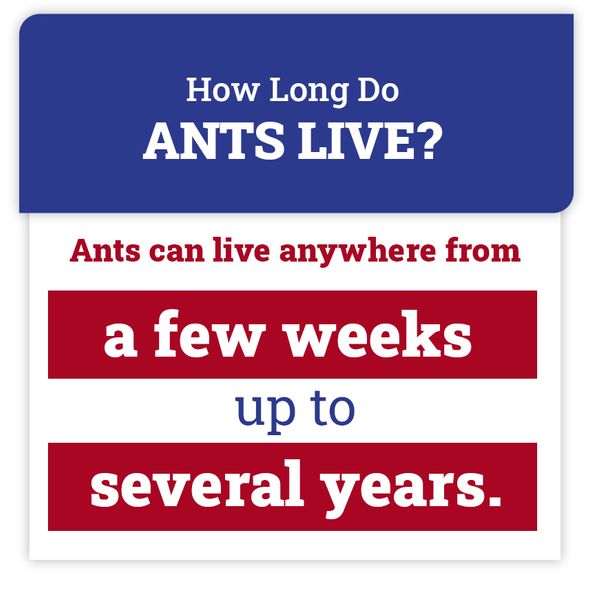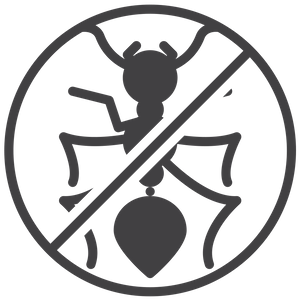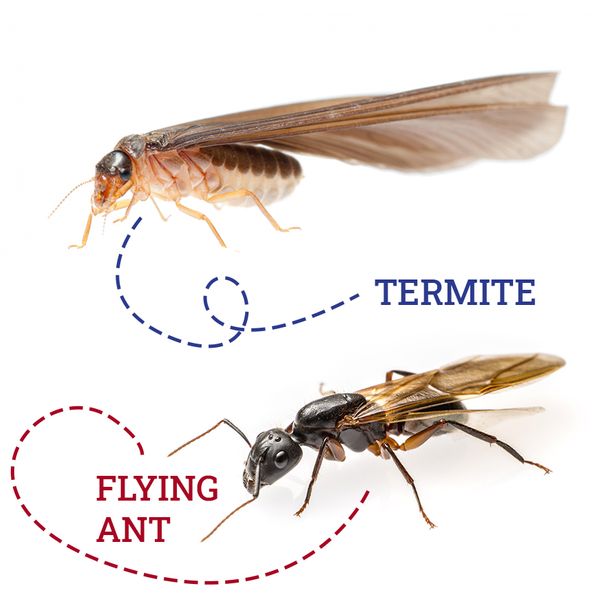If you live or do business in New Jersey, you’ve probably seen or dealt with one of the six species of ants currently in the areas. Some of the most popular ant species seen across these states include carpenter ants, velvet ants, Formica ants, and red pavement ants. To protect your home or business from ants, you need to learn about the behavior of this pest, take steps for prevention, and find effective treatment options should an infestation occur.

What Are Ants?
Ants are of the most common insects across the globe and in New Jersey, There are currently over 12,000 identified species of ants worldwide with a consensus belief that many more undiscovered variants exist. Within New Jersey there are six species of ants to contend with. These pests are known to be social insects living in intricate community structures underground, in trees, in wood structures, or in above-ground mounds of dirt.
While many ants live off of a diet of nectar, fungus, and seeds, some can have unique diets that include birds, reptiles, and other small mammals. Ants are well known for attacking left-out food, trash, and crumbs. One of the most unique facts about ants is their ability to carry up to 5,000 times their body weight in food and materials for their living quarters!
How Do I Identify Ants?
Exterminators explain ants are small, six-legged insects with small bodies broken into three parts: a head, thorax, and abdomen. Most ants in the New Jersey, areas are black, red, and/or orange in color. Pest control experts at Tapout Pest explain most likely, you will not see ants alone as they are social creatures that live together and work together to accomplish tasks like finding food and building their colonies. If you see a long line of insects traveling toward a food source, they are most likely ants.
Be careful, though, as ants do resemble termites and are often confused. Exterminators explain the main differences between the two are that ants have much larger heads, their bodies narrow between the heads and thorax areas, and they have antennae that appear to bend in the middle like elbows.
What Are the Effects of Ants in and Around My Home or Business?
Depending on the type of ants you are dealing with at your home or business in NJ, the negative effects vary. Not only can ants bite or sting your family, pets, and customers, but they can also destroy structures, damage property, and ruin trees in your landscaping. In the 1980s, 75% of urban shade trees sampled in New Jersey were infested with carpenter ants.

How Long Do Ants Live?
Ants can live anywhere from a few weeks up to several years. Life span is dependent on the species of the ants, the conditions they live in, their exposure to natural predators, and what role the ants play within the colony. For example, the pest control experts at Tapout Pest state queen ants can live up to an astonishing 30 years, while worker ants may only live a few weeks.

How Do I Prevent Ants in my Home or Business?
Ant prevention requires a multifaceted approach to have the best results. Exterminators advise not leaving excess food, trash, spilled liquids, pooled water, or crumbs around your home or business property. While these are not necessary to attract an ant infestation, there is no need to make your property more appealing.
Beyond this, professional pest control is the ideal approach. It is important to properly identify the type of ants you are dealing with and understand the right approach to get rid of that species. The approach to dealing with red pavement ants outside is different than the approach to exterminate carpenter ants living inside your home or business in New Jersey. The ant pest control experts at Tapout Pest are integral in proper identification and will help you formulate an effective and minimally invasive ant control treatment plan.
Flying Ants
Flying ants are matured male and female ants with a sole purpose to leave the ant colony and mate. These flying ants, also known as swarmer’s, leave when it is time for the ant colony to expand. Flying ants leave their colony as the weather begins to warm and when there is high humidity. You can expect to see groups of flying ants during the spring and early summer throughout New Jersey. Flying ants also tend to swarm in large numbers to keep predators away. Once the male and female flying ant have mated, the male flying ant will die and the female flying ant will find a place to nest and begin their own colony. This female flying ant will now be the queen ant of her colony.

Flying Ants vs. Termites. What Are the Differences?
Flying ants are sometimes mistaken for termites due to their swarming nature. The best ways to determine a flying ant from a swarming termite are their wings, antenna, and body shape. A swarming termite will have straight antenna, equal wing lengths, and a narrow body that is all one width. A flying ant will have a bent antenna, larger front wings, smaller back wings, and a pinched waist. The best way to determine the type of flying insect you are seeing is to call the pest control professionals at Tapout Pest. Our certified pest management experts will examine the flying insect and provide their findings as well as a proactive pest management plan to eliminate the pest and prevent costly damage to your home or business.



